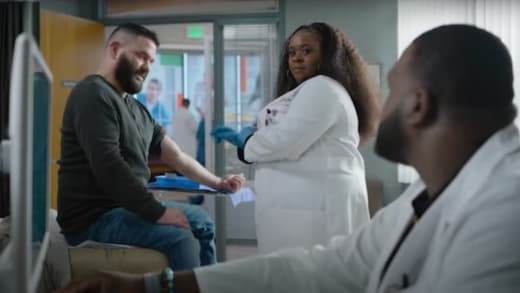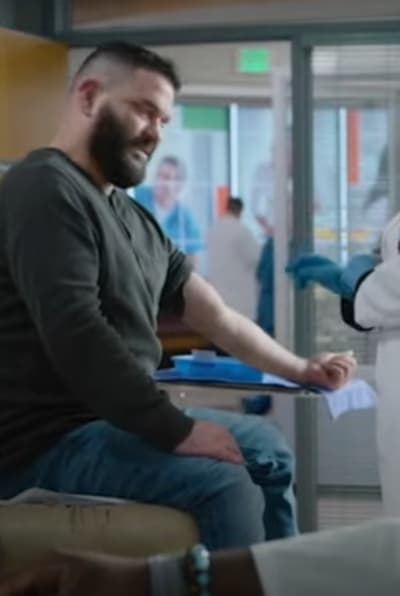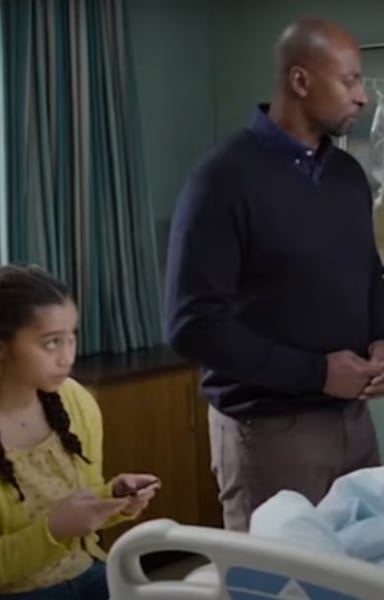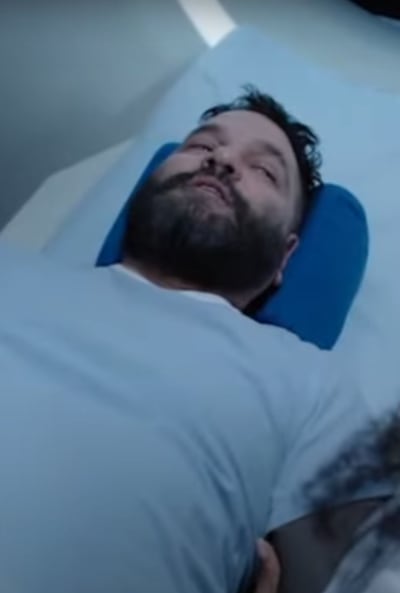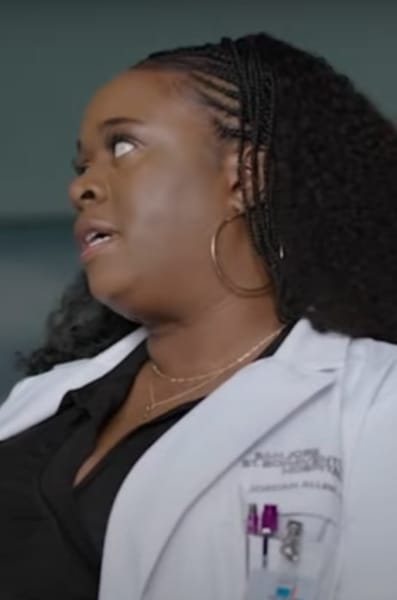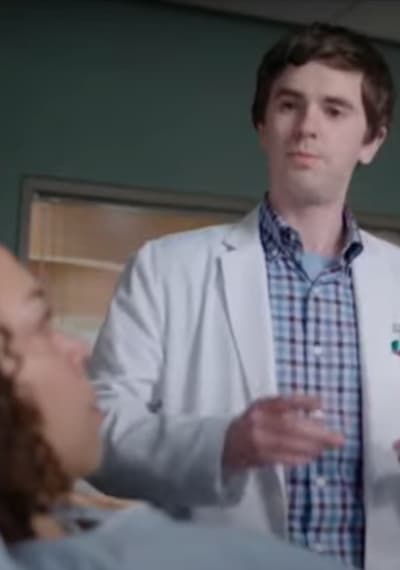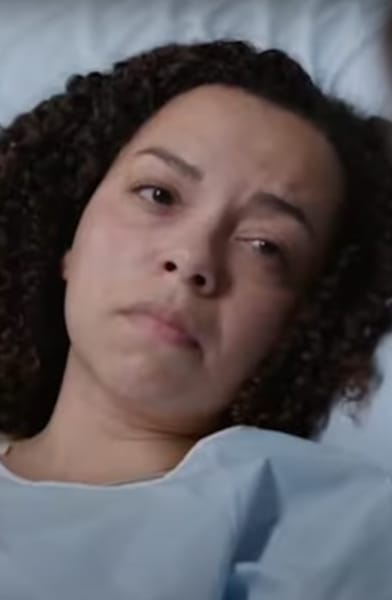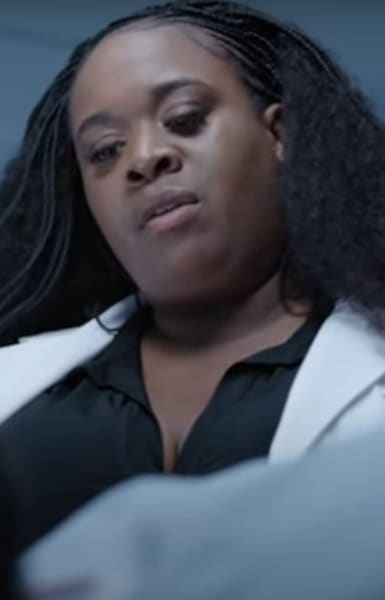The Good Doctor Season 7 Episode 7 Review: Faith

The Jesus story wasn’t as bad as it could have been.
Spoilers for The Good Doctor Season 7 Episode 7 made it seem like this would be a ridiculous story, but by halfway through the hour, “Jesus” had been cured of his delusions and was struggling with feelings of inadequacy.
That was utterly on-brand for The Good Doctor, yet entirely unpredictable. Well played!
Most stories of this nature follow a pattern in which something miraculous happens to make the skeptics and non-believers wonder whether they’ve encountered the Son of God after all.
Thankfully, The Good Doctor didn’t use that tired TV trope. Instead, Jesus’ story turned into a tale about a guy who felt so insignificant that he convinced himself he was Jesus to feel like he mattered in this world.
Many people are walking around like that, desperate for someone to notice them so they can prove to themselves they’re not invisible. Many, though not all, of them, are homeless or otherwise deemed unworthy by most of society.
They don’t all have delusions of grandeur, but the need to be visible is a basic human need that isn’t discussed enough. Carl was a sympathetic character once his real identity and feelings of inadequacy surfaced.
Jesus/Carl’s presence also triggered Jordan, forcing her to work through her grief in a new way.
The Grief Scenes on The Good Doctor Demonstrate Why Asher’s Death Was a Huge Mistake
Asher Wolke’s death will likely cast a shadow over the hospital for the remaining episodes.
He is gone and not forgotten, and Jerome and Jordan — the two people closest to him — are having a hard time with the loss.
If Asher had to die, at least we get a meaty story. Still, Jordan and Jerome’s grief doesn’t make Asher’s death worth it.
It reinforces all the reasons why killing this character was a mistake. The writers thought they were giving Asher’s story a satisfying ending and raising awareness about anti-Semitic violence, but all they did was kill off a character for no real reason.
Asher’s death was another example of a gay person getting killed on television right before they were about to get everything they wanted. Although it wasn’t the writers’ intention, this storyline reinforced the idea that gay people cannot be happy and shouldn’t even try to be.
All of these scenes honoring Asher’s memory only serve to remind viewers of why killing him was the wrong creative choice.
Still, Jerome’s story was a moving mental health storyline, even if it came out of a story that should never have happened. Jerome’s grief is still raw, and it’s not surprising he was considering quitting the hospital altogether.
Not only does Jerome have to deal with death regularly as an ER nurse, but that was the hospital where he and Asher met and built a relationship together. It has to be hard for him to walk through those doors every day, especially now when the grief is still raw.
Jordan’s Religious Doubts Were Finally Explained
Jordan was closest to Asher except for Jerome, so it’s natural she would be struggling. Before this episode, she’d always been a religious Christian who used to argue with Asher about their differing beliefs.
Yet she was the first to dismiss “Jesus'” claims as delusions and seemed uncomfortable with his religious talk.
That didn’t track until Jordan explained how Asher’s death had affected her religious beliefs.
I used to believe that. Whenever patients in the hospital died, I’d tell myself that it was part of God’s plan. But that was a lie. My friend was murdered standing up for one of Your children! You let him bleed out on the sidewalk, alone, not knowing that he was loved.
Jordan
She rejected God because of Asher’s death, and that was an emotional, authentic, and powerful speech she gave “Jesus” about why. She was wrong about one thing, though.
Asher didn’t die alone. The rabbi was with him, praying over him at the end.
That’s cold comfort, but at least someone was there for him.
What’s Going On With Glassman?
Aaron Glassman’s story included an intriguing mystery. Throughout the hour, he was constantly on the phone trying to get some images that were supposed to be available.
They could have been for a patient, but he had Hannah’s images, which he gave to Lim to look over.
The urgency he felt about getting them and his reaction upon learning the tests were “conclusive” suggested they were images related to his own health, but we weren’t given any clues about what they were about.
Did Glassman have brain scans done after being diagnosed with mini-strokes? That’s the most likely conclusion, but if so, it could lead to a heartbreaking finale.
Glassman has already beaten brain cancer twice, so we don’t need the series to end with him discovering it’s returned.
Maybe the scans are good news, suggesting he hasn’t had any mini-strokes. That would be nice, but it is probably wishful thinking, as Glassman didn’t sound happy about the test results, whatever they were.
Glassman’s New Patient Was Almost Like a Ghostly Visitor
Lim wasn’t far off the mark in her assessment of Glassman’s interest in helping Hannah.
Lim: She’s an addict, and she’s around the same age your daughter was when she died.
Glassman: Wow. Okay. Hannah is in real pain, and she is not going to get over her addiction until someone addresses it.
When he was sitting with her after the surgery, it felt like she was Maddie’s ghost, coming to comfort him because of whatever it was he was about to face medically.
Still, Glassman’s story brought up an important point. Too many people are labeled addicts or pill seekers, and no doctor tries to get to the bottom of what’s causing them to use.
Drug use is still treated far too much as a moral failing rather than the public health issue that it is. Doctors often miss vital clues as to a patient’s condition, too, when they dismiss a patient as an addict and don’t look any deeper.
As Glassman said, someone can be drug-seeking or addicted AND have a physical problem that needs to be addressed before they can get off drugs. It was frustrating that Lim couldn’t see past the drug-seeking behavior to realize that, but at least Glassman did.
There Always Has to Be One Ridiculous Story
The fight between Morgan and Lea over the nanny was silly and unnecessary.
Lea and Morgan had a fun female friendship that didn’t need to be interrupted by Morgan’s selfish behavior. Yes, this was typical Morgan, but still.
The sniping between the women was disappointing and not funny. Morgan’s sniping is never entertaining, and it was doubly unfunny for her to stab her best friend in the back.
The resolution of the story led Shaun to the odd conclusion that his six-month-old is autistic because he didn’t cry when he was dropped off.
If Steve is autistic, early evaluation is essential to determine what, if any, interventions he needs to be able to reach his potential and prevent unnecessary disability.
However, being autistic or having an autistic child is not a tragedy, so I didn’t like the way Shaun freaked out about the possibility. Lately, The Good Doctor has dropped the ball when portraying autistic issues accurately, which is a shame.
In addition, I wasn’t sold on the idea that Steve being calm when brought to the daycare meant anything. If anything, I’d think an autistic child would cry more because of the change in routine and environment.
What did you think, The Good Doctor fanatics?
Was the Jesus story moving or silly? Is Shaun right to be concerned about Steve? And what the heck is going on with Glassman?
Hit the big, blue SHOW COMMENTS button and let us know your thoughts!
The Good Doctor airs on ABC on Tuesdays at 10/9c.
Jack Ori is a senior staff writer for TV Fanatic. His debut young adult novel, Reinventing Hannah, is available on Amazon. Follow him on X.

